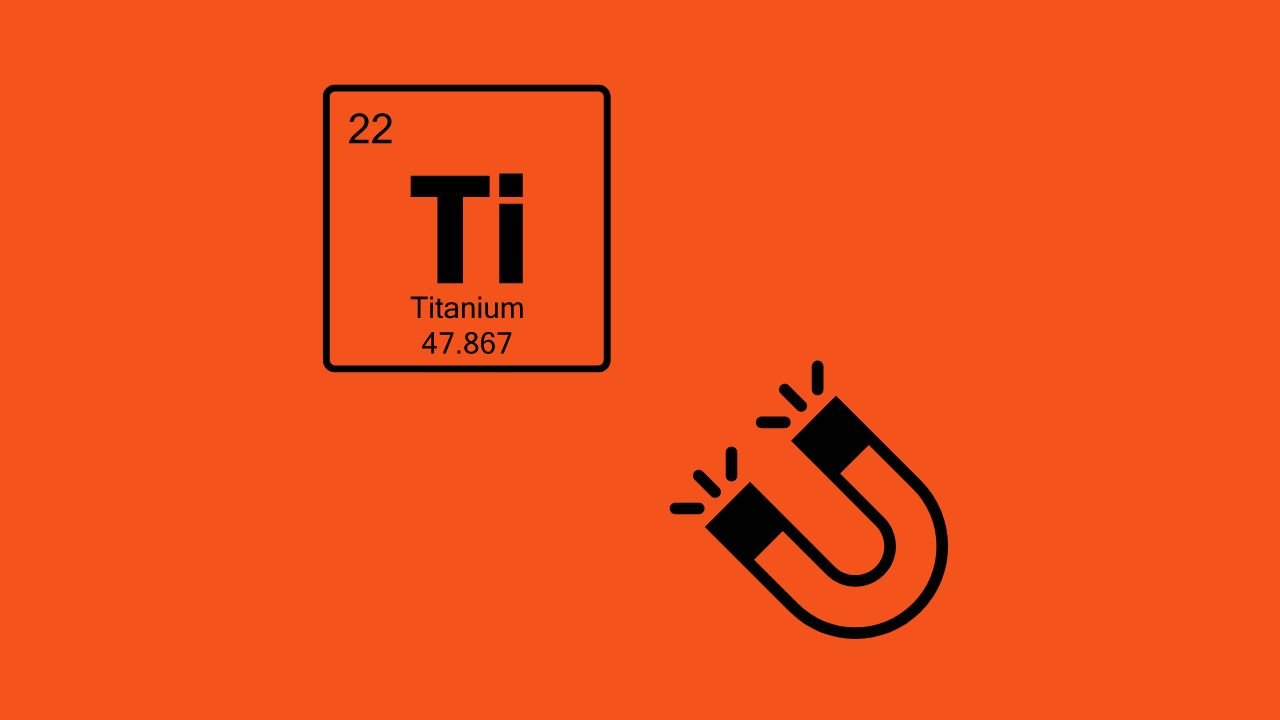Views: 0 Author: Rachel Wynn Publish Time: 2025-06-16 Origin: Site











Titanium is a critical engineering material prized for its exceptional strength-to-weight ratio, corrosion resistance, and biocompatibility, making it indispensable in sectors such as aerospace, medical devices, marine engineering, and high-performance automotive design. Among the many technical considerations for industrial applications, one frequently asked yet often misunderstood question is: Is titanium magnetic? The magnetic behavior of titanium is more than an academic detail—it directly influences component performance, system safety, and compliance with demanding standards such as those governing MRI compatibility or aerospace instrumentation. By understanding the fundamental magnetic properties of titanium as defined by physics and validated by international engineering standards, professionals can make informed decisions about material selection, design integration, and procurement for magnetically sensitive environments.
In material science, titanium is classified as paramagnetic. This means it exhibits a weak, positive response to external magnetic fields but does not retain magnetism when the external field is removed. Unlike ferromagnetic materials such as iron, nickel, or cobalt, titanium has no permanent magnetic dipoles.
The magnetic susceptibility (χ) of commercially pure titanium is approximately +180 × 10−6 cm³/mol. According to the ASTM and NIST materials data, the relative magnetic permeability (μr) is about 1.00005, only marginally greater than that of a vacuum (μr = 1).
| Material | Magnetic Class | Magnetic Susceptibility (χ) | Relative Permeability (μr) |
|---|---|---|---|
| Commercially Pure Titanium | Paramagnetic (Non-magnetic) | +180 × 10−6 | ~1.00005 |
| 304 Stainless Steel | Paramagnetic | +1000 to +3000 × 10−6 | ~1.05 |
| 316L Stainless Steel | Paramagnetic (Non-magnetic) | +100 × 10−6 | ~1.0–1.02 |
| Carbon Steel | Ferromagnetic | Varies | ~100–5000+ |
| Nickel | Ferromagnetic | ~600 × 10−6 | ~100–600 |

Titanium’s negligible magnetic response has major advantages in critical industries:
Medical Industry: Titanium is widely used in implants, prosthetics, and surgical instruments that must be safe in Magnetic Resonance Imaging (MRI) environments. Unlike ferromagnetic metals, it does not cause movement, heating, or artifacts in MRI scans.
Aerospace and Defense: In aircraft and spacecraft, titanium’s low magnetic signature minimizes interference with magnetometers, gyroscopic navigation, radar systems, and other sensitive avionics.
High-Precision Instruments: For scientific sensors, gyroscopes, and quantum computing components, non-magnetic environments are crucial—making titanium the material of choice.
Marine Engineering: Submarine hulls, sonar systems, and offshore sensors benefit from titanium’s immunity to magnetic fields and its corrosion resistance in seawater.
Under normal industrial conditions, titanium remains non-magnetic. However, some exceptions include:
Cold Working: Extreme plastic deformation (e.g., deep drawing or rolling) can slightly alter the microstructure, leading to trace magnetic response.
Contamination: Machining or heat treatment in environments with ferrous metals can introduce magnetic inclusions.
Alloy Composition: Titanium alloys with high concentrations of iron (Fe), cobalt (Co), or nickel (Ni) may exhibit weak magnetism. This is rare in aerospace or medical grades but possible in experimental alloys.
For applications where absolute non-magnetic behavior is required, materials should be certified according to standards like ASTM F136 or ISO 5832-3.

If your project involves magnetically sensitive environments—such as MRI rooms, naval defense, or quantum computing labs—ensure that the titanium you purchase is certified with:
Material Test Reports (MTR) with magnetic permeability data
Composition certificates confirming low Fe, Ni, Co content
Conformance to ASTM F67 (CP Titanium) or ASTM F136 (Ti-6Al-4V ELI) standards
Independent magnetic susceptibility test results if required by spec
No. Titanium is paramagnetic, meaning it does not retain magnetic properties and is not attracted to magnets under normal conditions.
Yes. Titanium is MRI-safe and is extensively used in implants, surgical tools, and prosthetics within high magnetic fields.
Most are, especially medical and aerospace grades. But some alloys with iron or cobalt may show weak magnetic effects. Always check the specification.
Rarely. However, contamination with magnetic particles or improper tooling can slightly increase magnetic response. It’s advisable to test if critical.
We supply titanium materials for medical, aerospace, and precision industries. Contact us for grades, certifications, and expert sourcing advice.






